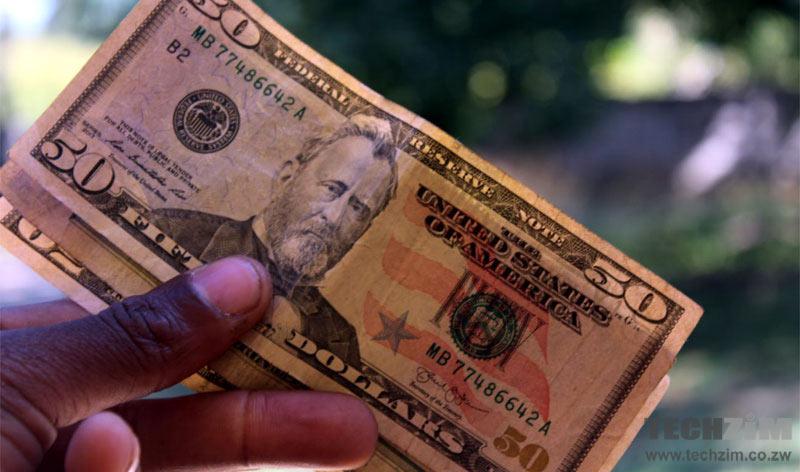Authored by Garikai Dzoma via TechZim.com,
When you see the list of things Zimbabwe imports it’s hard for you not to wonder: Is there something this country does not import? I mean we import everything from razor blades to matches. Now you can add another thing to the list: USD currency.
Yes, we import those flashy dollar bills and most of them come from South African banks. Unfortunately due to something called de-risking all South African banks have either terminated access to this cash or have given notice that they will no longer be supplying Zimbabwean based banks/businesses with USD cash.
According to William Manimanzi, the Deputy director of financial markets at the RBZ the problem could be a result of the fact that we are not officially a dollar economy
I think you are all aware that we are not officially dollarised. When I say officially dollarised, I mean we don’t have an agreement with the United States that we were going to adopt their currency officially; we just unofficially dollarised. What that means is it’s very difficult to bring cash (USD) in this economy. Where do we get our cash (USD) from? Ordinarily, we import from South Africa and most of the banks due to what is called de-risking issues, have now given us notice that they can no longer provide our own local banks with cash. So we are in a catch 22 situation. The only bank remaining was FNB and they gave notice in December that they will no longer supply our own local banks with cash.
This is hurting money transfer agents
This has been hurting money transfer agents a lot. Recipients expect to receive their hard currency intact. This means money transfer agents have been importing cash into Zimbabwe and they are getting this cash from South African banks who like dominos have been terminating MTA (money transfer agents) accounts.
This has also hurt the gold business as small scale miners expect to be paid in cash.
What is de-risking
According to World Bank:
Global financial institutions are increasingly terminating or restricting business relationships with remittance companies and smaller local banks in certain regions of the world – a practice that is called “de-risking.”
de-risking is indeed happening in pockets around the world – but its effects are unevenly distributed, with some regions more affected than others.
Smaller countries with limited financial markets are particularly vulnerable to de-risking practices, and we are seeing evidence of this, notably in the Caribbean region.
…and why are South African banks doing it
( lots of paragraphs where I am speculating)
All the banks seem to be saying that there is a risk associated with dealing with MTAs and Zimbabwe’s banking institutions. According to the World Bank de-risking is happening because banks are weighing the cost and benefits of maintaining these accounts/relationships and coming to the conclusion that they are not worth the trouble.
For Zimbabwe, it can really be a sanctions issue. ZIDERA is ostensibly about targeted sanctions blah blah but the truth is that it sends the message that Americans have not really warmed up to our government or Zimbabwe as a whole. If you didn’t know, the truth is that the U.S pretty much has a hegemony over the world’s financial systems. The fact that we are using the USD without permission puts us further firmly within their grasp.
MTAs already suffer from a high risk of what are known as ML/TF (money laundering/terrorist financing ) risks. Experience has shown that terrorists and money launders and fraudsters make constant use of these channels. Banks these days live in fear of being on the receiving end of the wrath of anti-money laundering/counter-terrorist financing (AML/CTF) regulatory authorities.
When it comes to fining banks for violating agreements and rules the U.S is really up there. They really know how to crack the whip. The risk for SA banks that someday they may be summoned and having their behinds lashed is probably too high compared to what the accounts are bringing in.
via ZeroHedge News https://ift.tt/2GRmSj3 Tyler Durden
